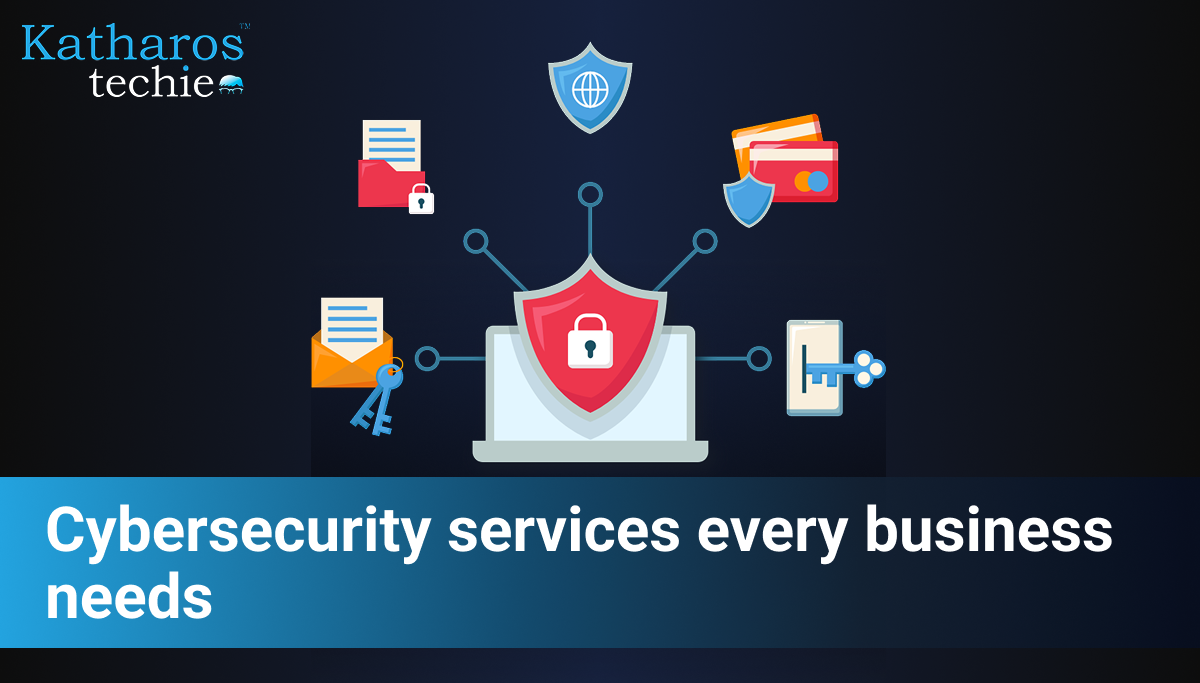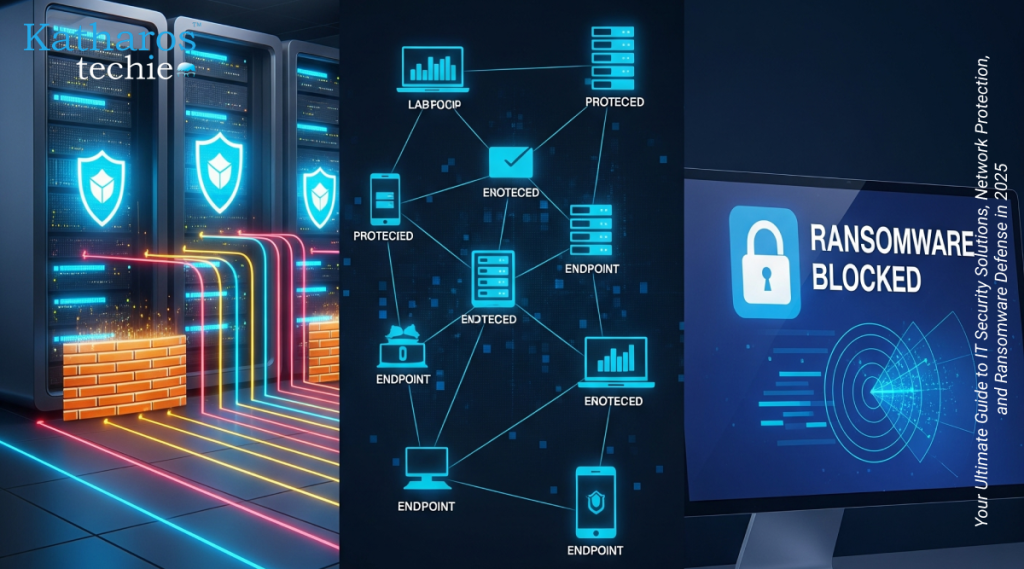
Cybersecurity Services Every Business Needs
By Gauri Kulkarni

In today’s hyper-connected world, cybersecurity is no longer just an IT concern—it’s a business-critical priority. With data breaches, ransomware attacks, and phishing scams becoming increasingly sophisticated, every company—from startups to enterprises—needs robust cybersecurity services to protect sensitive data and maintain customer trust.
Let’s break down the essential IT security solutions every business should invest in, along with best practices for network protection, endpoint security, and more.
Why Cybersecurity is Non-Negotiable in 2025

The digital landscape is evolving, and so are cyber threats. Businesses now store massive amounts of data in the cloud, use SaaS platforms, and enable remote work—creating more entry points for attackers. A single breach can cost millions and cause long-term reputational damage.
Cybersecurity services are essential for:
- Preventing financial and data loss
- Safeguarding customer information
- Ensuring IT compliance with regulatory frameworks like GDPR, HIPAA, and PCI-DSS
- Avoiding costly downtime due to system failure or malware
1. Network Protection: The First Line of Defense
Your company’s network is the gateway to everything. Unprotected networks are like unlocked doors for cybercriminals. Effective network protection starts with:
- Firewall protection to monitor incoming/outgoing traffic
- Intrusion Detection and Prevention Systems (IDPS)
- Virtual Private Networks (VPNs) for remote access security
- Secure Wi-Fi protocols and segmented guest networks
These tools prevent unauthorized access and help detect anomalies early.
2. Endpoint Security: Securing Every Device
With employees using laptops, smartphones, and tablets to access company resources, endpoint security is more critical than ever.
Must-have endpoint protection includes:
- Antivirus and anti-malware software
- Device encryption
- Remote wipe capabilities
- Mobile Device Management (MDM) tools
By securing each device individually, businesses reduce the attack surface and avoid internal vulnerabilities.
3. Ransomware Prevention: Stay One Step Ahead

Ransomware attacks are among the most damaging cyber threats today. They lock down your systems and demand payment for access.
Smart ransomware prevention strategies include:
- Frequent, encrypted data backups stored offsite
- Staff training on phishing and malicious links
- Email security gateways
- Zero-trust architecture and role-based access control
Businesses should also run regular threat simulations and disaster recovery drills to ensure readiness.
4. Cyber Threat Management: Proactive and Ongoing
Cybersecurity is not a one-time solution. Businesses need cyber threat management practices that actively monitor, detect, and respond to threats in real-time.
This includes:
- Security Information and Event Management (SIEM) platforms
- 24/7 Managed Security Services Providers (MSSPs)
- Real-time threat intelligence updates
- Automated alert systems for rapid response
Proactive threat hunting allows businesses to identify unusual behavior and shut it down before it escalates.
5. IT Security Solutions for Small and Mid-Sized Businesses
You don’t need a Fortune 500 budget to get enterprise-grade protection. Many IT security solutions are now affordable and scalable.
Ideal solutions for SMBs include:
- Cloud-based antivirus and firewall tools
- Affordable MSSP partnerships
- Endpoint protection bundles
- Secure collaboration tools with two-factor authentication (2FA)
Small business cybersecurity is just as vital as enterprise-grade security—and often more vulnerable due to limited resources.
6. Employee Training: Your Human Firewall
Technology alone isn’t enough. Human error is one of the leading causes of security breaches. Investing in cybersecurity awareness training can drastically reduce risks.
Key focus areas:
- Recognizing phishing emails
- Safe browsing habits
- Proper use of passwords and password managers
- Reporting suspicious activity immediately
Making cybersecurity a part of your workplace culture is a game-changer.
7. Cloud Security and Compliance
If your business uses cloud services (like AWS, Google Cloud, or Microsoft Azure), you need tailored cloud security tools. These include:
- Cloud Access Security Brokers (CASBs)
- Encryption at rest and in transit
- Multi-cloud monitoring platforms
- Regular compliance audits
Maintaining IT compliance with industry-specific regulations protects you legally and builds customer trust.
8. Backup and Disaster Recovery (BDR)
Even the best defenses can fail. That’s why disaster recovery and data backup solutions are essential.
A strong BDR plan includes:
- Automatic, frequent backups
- Multiple recovery points
- Offsite and cloud storage
- Rapid recovery testing
In the event of a breach or system crash, this minimizes downtime and financial losses.
Conclusion: Partnering With the Right Cybersecurity Provider
Cybersecurity is complex, and the stakes are high. The smartest move for most businesses is to partner with a trusted IT service provider that specializes in managed security services and holistic cybersecurity solutions.
These experts provide
- Customized threat assessments
- Scalable solutions for growth
- 24/7 network monitoring and protection
- Strategic consulting on long-term cybersecurity roadmaps
Final Thought: Protect Now, Thrive Later
No matter your size or industry, cybersecurity is no longer optional. Investing in the right cybersecurity services today ensures your business remains resilient, trustworthy, and future-proof in a digital-first world.
Also read: https://katharostechie.in/cybersecurity-in-web-development-2024/